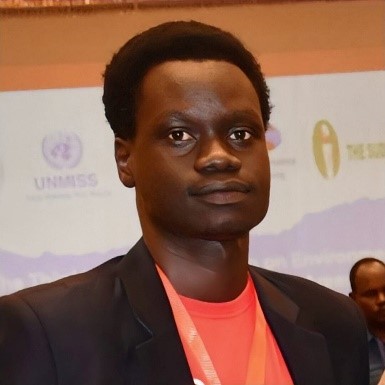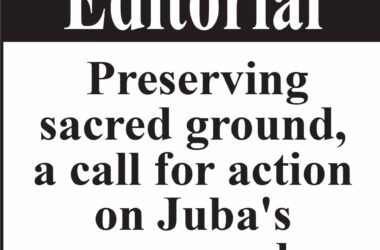By Matik Kueth
In South Sudan, a crisis festers unnoticed by many people, who often turns their gaze away from the country’s media operations.
This conundrum, however, does not involve bloodshed or political maneuvering, but rather centers on the essence of democracy: a lack of access to information.
South Sudan’s media faces numerous challenges, including journalists’ lack of access to crucial information, which limits their ability to deliver substantive content. This impasse transcends beyond conventional journalistic shortcomings; it reflects a structural problem in which media censorship, government opacity, and public misunderstanding converge, creating an environment in which quality journalism is not merely impeded but almost unattainable.
Access to reliable information is critical for reporting on events that shape any nation. Journalists are, by definition, truth seekers who want to shed light on important subjects.
However, in South Sudan, this intention is continually foiled. Journalists attempting to unearth the facts about political tensions, conflicts, or government policies frequently face a wall of silence constructed by officials who are unwilling to provide information. When they approach politicians or government organizations, they usually face blatant denial, making it extremely difficult to get the facts required to back up their reporting.
Journalists are frequently criticized for their preference for soft stories rather than investigative reporting. Although this criticism is common, it is out of context and ignores the intimidation and barriers that many journalists encounter. The range of stories that journalists can cover drastically reduces when important information is routinely withheld. Because they lack access to reliable sources, and had to make do with what they have, which often results in covering less controversial stories subjects that anger those in positions of authority less.
Censorship of the media makes reporting in South Sudan even more difficult. Security personnel often remove items out of publications before they are printed, and there are stiff consequences for resisting these efforts, from threats of assault to jail time. Journalists are self-censored by a climate of fear, which also stifles possible news stories, leaving the media landscape lacking in meaningful content.
On the other hand, freedom of the press is still a far cry in the country, despite being praised as a basic right necessary for a functional democracy. One must wonder why journalists are held solely responsible for creating poor material when there are so many barriers to their profession. Journalists are fighting an uphill struggle against systemic barriers in situations where information is limited, and openness is restricted. They are trying to work in a setting that inhibits the free flow of ideas, which is the fundamental component of journalism.
For instance, the current political tensions exacerbated by armed conflicts, such as the violent clashes between the White Army and government forces in Upper Nile State, require accurate reporting. Yet journalists are often unable to obtain factual reports on such events.
In a country where every narrative holds significant weight and can influence public opinion and governmental action, the inability to access verifiable information poses a grave impediment to reporters fulfilling their duty. Consequently, they are often left to piece together fragmented accounts from hearsay or rumor, jeopardizing journalism credibility and ethics.
Therefore, it is imperative to enhance the public’s understanding of the significant challenges that journalists encounter, to foster better empathy and support for their work. Increasing press freedom in South Sudan is critical not only for the well-being of journalists but also for the broader fabric of society. Fostering an atmosphere in which the press can function freely promotes openness and cultivates an informed citizenry, allowing individuals to make informed judgments about governance, both of which are essential components of a healthy democracy.
The plight of journalists in South Sudan merits the attention of not just their peers but anyone who champions freedom of expression and democratic values. The challenges they face in accessing information are profound.
Moreover, the narrative surrounding journalism in South Sudan should not be one of blame, but rather than understanding the systemic bottlenecks that impede excellent reporting.
So, by boosting access to information in the country, South Sudan can cultivate a more educated and engaged citizenry by improving information access and fostering an environment in which journalists can operate freely.
The views expressed in this ‘opinion’ piece published by Number One Citizen Newspaper are exclusively those of the writer. The author is solely accountable for the veracity of any claims indicated, not Number One Citizen.




